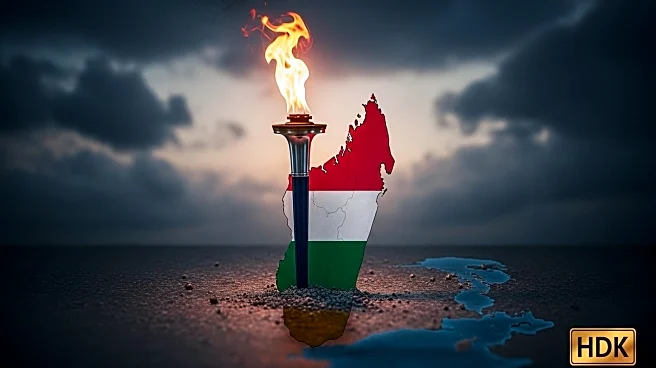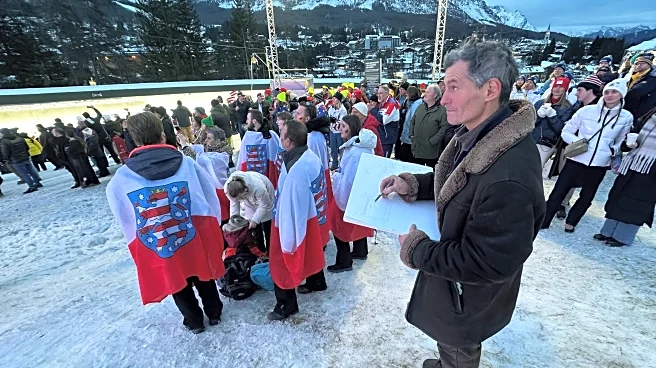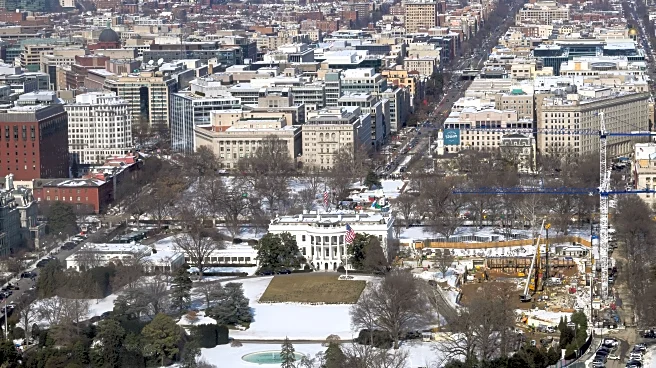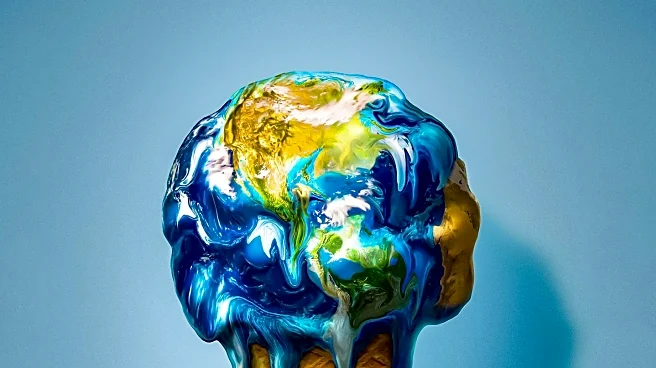What's Happening?
Madagascar's President Andry Rajoelina has dismissed the prime minister and the entire government following days of protests led by Gen Z activists. The demonstrations, sparked by failures in electricity and water supplies, have resulted in at least 22 deaths, according to the United Nations. The protests, which began peacefully, escalated as security forces responded with tear gas and live ammunition. The unrest mirrors similar youth-led movements in Nepal and Kenya, driven by dissatisfaction with government services and economic conditions. President Rajoelina has invited applications for new government positions, signaling a potential shift in leadership.
Why It's Important?
The protests in Madagascar reflect a growing trend of youth-led activism worldwide, challenging governments over inadequate public services and economic hardships. The dismissal of the government highlights the pressure on leaders to address the demands of younger generations. The situation in Madagascar could influence other countries facing similar issues, as youth movements gain momentum through social media and global solidarity. The international community, including human rights organizations, is closely monitoring the situation, which could impact foreign relations and aid.
What's Next?
President Rajoelina's decision to fire the government may lead to political instability as new leaders are appointed. The protests are likely to continue, with demonstrators demanding further changes and accountability. The international community may increase pressure on Madagascar to ensure human rights are respected during the transition. The government's response to the protests and its ability to restore public services will be crucial in determining the country's future stability.










